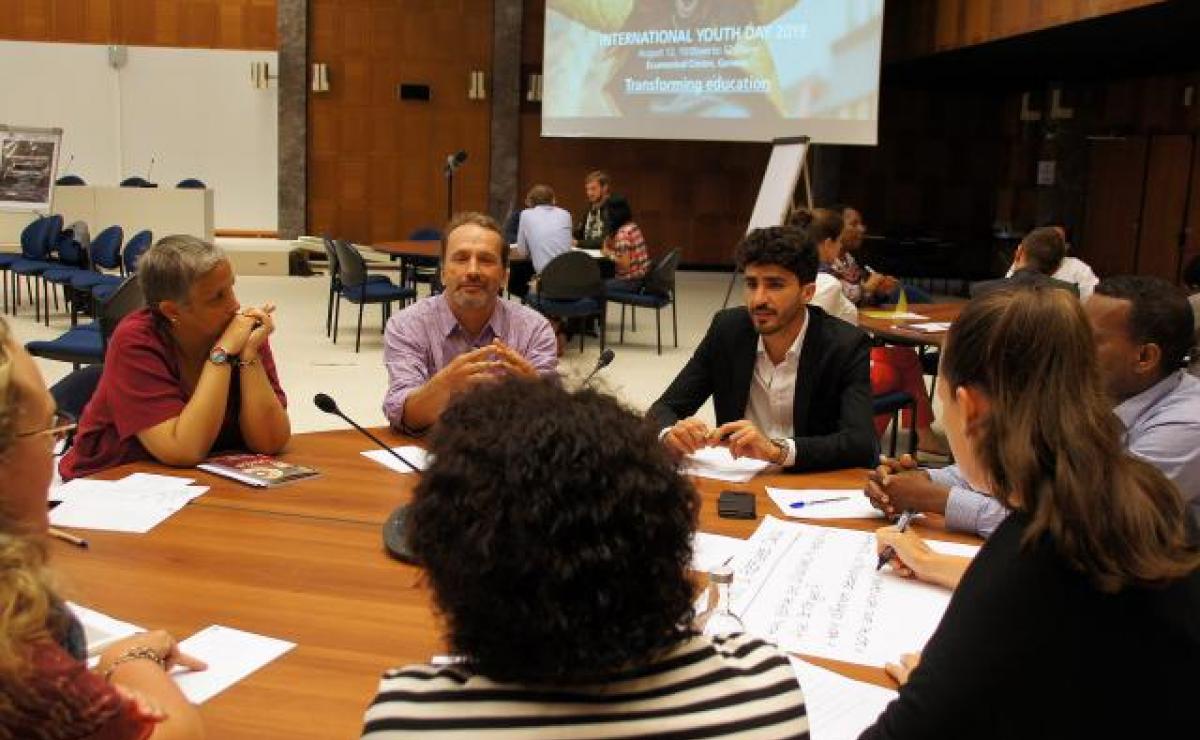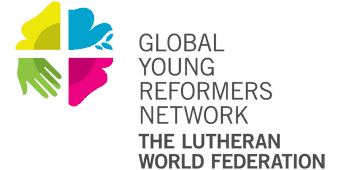LWF and partners observe International Youth Day

Youth “effectively contributing to the revival of churches and communities”
(LWI) - The inclusion of young people on all levels is necessary to envision a future of justice and peace. This was the overall agreement shared as The Lutheran World Federation (LWF), together with the World Council of Churches (WCC) and the World Christian Student Federation (WCSF) observed International Youth Day at the Ecumenical Center.
“Being young today is rewarding as well as challenging. Young people today face many different challenges in different contexts. Often, it is difficult for them to integrate in this adult-led society, because their talents are overlooked and under-valued,” says LWF Youth secretary Pranita Biswasi.
“Amazingly adept, profoundly connected”
At the same time, social media and global perspectives have created an unusually active young generation: “Young people today are amazingly adept, profoundly connected to each other and already effectively contributing to the revival of our churches and communities,” Biswasi continued. “This generation has also challenged some of the traditional practices, values, priorities and political views.”
The event with the theme “Transforming Education” was celebrated with contributions on different topics and group discussions. Azeez Sadeq, a young man who fled terror in Iraq in 2014, shared his experience and the challenges of accessing education as a refugee in Europe. LWF young reformer Khadija Islam from the US called young women and men to break existing stereotypes and patterns for more gender justice.
Climate activist and LWF council member Khulekani Magwaza from South Africa shared how the drought and lack of water in his country had deepened the division between urban and rural communities. Maria Camilla Uloa from Colombia gave insights into the challenges young people in Central America face when trying to access higher education and employment, and Jennifer Muthoki from Kenya, on the example of the militant group Al Shabaab illustrated the dangers of radical extremism.
Engaged for positive change
“The world’s greatest challenges—whether of health and reproductive health, HIV and AIDS, access to education, jobs, racial and ethnic conflict, migration and trafficking and slavery—all these great world issues are most keenly youth issues” said the Prof. Dr. Isabel Apawo Phiri, assistant general secretary of the WCC, in her opening greeting. At the same time, millennials like no generation before seem to value, cooperation, inclusion, community engagement and contributing to society.
LWF general secretary Rev Dr Martin Junge related how introducing end enforcing a youth quota in the organization’s governing body in 1984 had given young people a voice, which in the past few years has been especially instrumental in steering decisions on climate justice. “Having young people participate in the process of deliberations, discernment and decision-making has made us rich,” Junge concluded.
Videos
Watch the full livestream of this event at lwf.is/youth-day-livestream-2019
